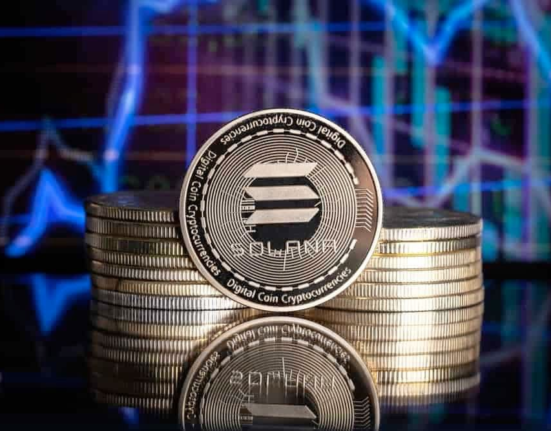Decentralization is the transfer of power, authority, control, and decision-making away from centralized entities to a larger distributed network.
Decentralized networks aim to create a trustless system where the level of trust needed between network participants is minimal. A trustless system is fostered by distributing decision-making and resources among numerous participants, averting the risk of a small number of bad actors taking control of the network.
The concept of decentralization is a complex multifaceted one. It can come in various forms:
- Political decentralization promotes greater participation to give decision-making powers to the public. Democracy, for example, is a decentralized political system;
- Administrative decentralization aims to distribute authority, responsibility, and financial resources;
- Fiscal decentralization aims for financial sustainability and decentralization via self-financing, taxes, fees, loans, and more;
- Economic decentralization promotes economic liberalization and market development policies that give resources and responsibilities, such as decision-making power, to several market participants rather than a single centralized entity.
Here, we will be focusing on the definition of decentralization in blockchain and cryptocurrencies.
Table of Contents
What Does Decentralization Mean in Blockchain?
Decentralization is a core philosophy in the blockchain and cryptocurrency world. To learn why decentralization is important to public blockchains and cryptocurrencies, we need to understand why Bitcoin was created.
Bitcoin is the oldest and the most valuable public blockchain network in the world. It was created by the pseudonymous Satoshi Nakamoto to be a decentralized peer-to-peer (P2P) payment network powered by blockchain technology. The Bitcoin whitepaper was released in October 2008 in the midst of a recession that was blamed on banks for giving out and repackaging subprime loans.
Users can transfer funds and make payments without going through a financial institution via the Bitcoin network. The blockchain is not owned or operated by a single entity. It is kept decentralized via a network of operators called ‘miners’ who run the network by processing and validating transactions. There is no recruitment process to become a miner. Anyone with Bitcoin mining hardware and operating funds (mostly to pay for electricity) can choose to become a miner.
Core principles of decentralization – autonomy, transparency, censorship-resistant, and privacy – are at the heart of Bitcoin, Ethereum, and most other public blockchains. These public blockchains operate as open networks. Anyone with an internet connection can access the network and its ecosystem of applications built on them.
How Do Public Blockchains Achieve Decentralization?
Public blockchain networks aim to keep their operations decentralized via:
- Distributed networks: Bitcoin and Ethereum operate as distributed networks where information and tasks are shared across multiple nodes or participants. The network of nodes that are running simultaneously with one another ensures that the blockchain remains decentralized, secure, and resistant to single points of failure.
- Peer-to-Peer (P2P) architecture: Public blockchains use P2P architecture that enables participants to communicate and interact direct with one another. The peer-driven approach eliminates the dependency on centralized entities such as web service providers.
- Autonomy and empowerment: Public blockchains promote decentralization by empowering users and giving them control over their assets and data. For example, users do not need a bank account to store their cryptocurrencies; users are not required to provide personal data to use decentralized applications; users can choose to remain anonymous; blockchain transactions are transparent for anyone to verify the validity of the transactions.
Decentralized Finance (DeFi)
Decentralized finance (DeFi) is a revolutionary field of applications of blockchain technology that aims to disrupt traditional finance systems. It looks to expand the use of decentralized public blockchains beyond peer-to-peer payments. By leveraging smart contract technology, users can now perform any number of financial actions, such as staking to earn interest, borrowing and lending funds, and more on public blockchain networks.
Ethereum pioneered the technology that enabled DeFi – smart contracts. They are self-executing computer programs that developers use to launch tokens, create NFTs, and build decentralized applications (dApps) that operate autonomously. These applications operate on the principles of transparency, immutability, and trustlessness, giving users full control over their funds and financial activities.
With DeFi, users do not have to go through credit score verifications and other lengthy formalities to take out a loan. Foreign remittances are made quick and easy as users do not have to depend on a network of individual banks and payment systems to send and receive funds. Trading of cryptocurrencies is made available 24/7 via decentralized exchanges (DEX).
Defining Decentralization: Centralized vs. Decentralized

| Centralized systems | Decentralized systems | |
| Control | Controlled by a single, centralized entity | Control distributed among multiple participants |
| Decision-making | A centralized entity makes all the decisions | Decisions are made through consensus, often obtained via voting |
| Transparency | Often limited | Open |
| Security | Dependent on the centralized authority | Security is maintained via cryptographic algorithms, game theory, consensus mechanisms |
| Single Point of Failure | Vulnerable to a single point of failure | Resilient against single points of failure due to distributed nature |
| Trust | Users depend on the trustworthiness of the centralized entity | Verifiable, trustless system |
| Scalability | Centralized networks can scale faster than decentralized networks due to faster decision-making and power centralization | Scalability can suffer with decentralization as a top priority |
| Innovation | Depends on the centralized entity | Open networks promote participation and innovation |
Disadvantages of Decentralization
- Limited scalability: Decentralized systems may face scalability limitations due to the greater number of participants needed to contribute to decision-making. The need to reach a consensus among all network participants can also slow down scalability improvement proposals.
- Coordination complexity: An open and diverse network with thousands of anonymous participants may find it difficult to coordinate and reach an agreement on various matters.
- User responsibility: Blockchain users are expected to be responsible for securing their assets, managing their private keys, and protecting against hacks and thefts. No one can help in the case of a lost private key.
- Security risks: Decentralized systems do not have regulatory oversight, which may make their users vulnerable.
- Governance: Achieving total decentralization is difficult due to the complexities of achieving decentralized governance.
Advantages of Decentralization
Decentralization offers a range of potential advantages over centralized systems. Here are some of the key benefits:
Increased Transparency and Trust:
- Reduced Reliance on Central Authorities: In a decentralized system, there’s no single entity controlling everything. This can lead to greater transparency as data and operations are often publicly viewable on a blockchain. Users don’t have to rely solely on a central authority to act in their best interests.
- Enhanced Security: Decentralized systems are typically more resistant to censorship or manipulation by a single entity. Since data is spread across a network of computers, it’s more difficult to tamper with information or shut down the entire system.
Empowerment and User Control:
- Greater User Autonomy: Decentralized systems often give users more control over their data and assets. In traditional systems, platforms control user data, but in decentralized systems, users can potentially own and manage their data directly.
- Increased Participation and Collaboration: Decentralization can encourage broader participation in decision-making processes. For example, some decentralized projects allow token holders to vote on proposals for future development.
Improved Efficiency and Innovation:
- Faster Transactions and Reduced Costs: Decentralized systems can potentially streamline processes and reduce transaction fees by eliminating the need for intermediaries. For example, in traditional finance, banks act as intermediaries for money transfers, but decentralized finance (DeFi) applications aim to facilitate peer-to-peer transactions without the need for banks.
- Enhanced Innovation: Decentralization can foster innovation by creating open-source platforms where developers can build new applications and functionalities. This can lead to a more dynamic and competitive ecosystem.
Important Considerations:
- Scalability Challenges: Decentralized systems can sometimes face scalability challenges, meaning they might struggle to handle a large number of users or transactions efficiently.
- Security Risks: While generally considered secure, decentralized systems can still be vulnerable to hacking attacks or exploits. It’s important to be aware of the potential risks before participating in any decentralized project.
- Regulation and Uncertainty: The regulatory landscape surrounding decentralized technologies is still evolving. This can create uncertainty for users and businesses operating in this space.
Overall, decentralization offers a compelling vision for a more transparent, user-centric, and innovative internet. However, it’s important to acknowledge the potential challenges and ongoing development in this field.
The Bottom Line
The narrative around achieving decentralization via public blockchains and cryptocurrencies has been engraved in our heads over the last decade. But the concept of decentralization is a complex one. Even the top public blockchains like Bitcoin and Ethereum face questions about the extent of their decentralization.
Public blockchains continue to be tormented by the dilemma of choosing mass scale or true decentralization.
Disclaimer ||
The Information provided on this website article does not constitute investment advice,financial advice,trading advice,or any other sort of advice and you should not treat any of the website’s content as such.
Always do your own research! DYOR NFA
That’s absolutely right! DYOR (Do Your Own Research) and NFA (Not Financial Advice) are crucial mantras in the cryptocurrency and NFT space. Here’s a breakdown of why they’re so important:
DYOR (Do Your Own Research):
- Informed Decisions: The crypto and NFT space is constantly evolving, with new projects and technologies emerging rapidly. By conducting your own research, you can gather information, understand the risks and potential benefits involved, and make informed decisions before investing or participating in any project.
- Avoiding Scams and Rug Pulls: Unfortunately, scams and rug pulls (where developers abandon a project after taking investors’ money) do exist in this space. DYOR helps you identify red flags and avoid projects that seem too good to be true.
- Understanding the Project: Researching a project thoroughly allows you to grasp its purpose, roadmap, team background, and potential utility. This knowledge helps you assess if the project aligns with your interests and risk tolerance.
NFA (Not Financial Advice):
- Personal Responsibility: Information shared online, even if it seems well-intentioned, shouldn’t be taken as financial advice. Your financial situation and risk tolerance are unique. By acknowledging that information is NFA, individuals emphasize they are responsible for their own investment decisions.
- Transparency and Avoiding Misconceptions: The NFA disclaimer clarifies that recommendations or opinions expressed are for informational purposes only and shouldn’t be solely relied upon for financial decisions.
- Regulatory Compliance: In some jurisdictions, providing financial advice might require specific licenses or qualifications. The NFA disclaimer helps individuals avoid any potential regulatory issues.
Here are some tips for conducting your own research (DYOR):
- Read project CoinDataCap and roadmaps.
- Research the team behind the project and their experience.
- Explore the project’s community forums and social media channels.
- Read unbiased reviews and analyses from reputable sources.
- Compare the project to similar offerings in the market.
By following these principles, you can approach the crypto and NFT space with a healthy dose of skepticism and make informed decisions based on your own research. Remember, DYOR and NFA empower you to take control of your financial journey!





Leave feedback about this